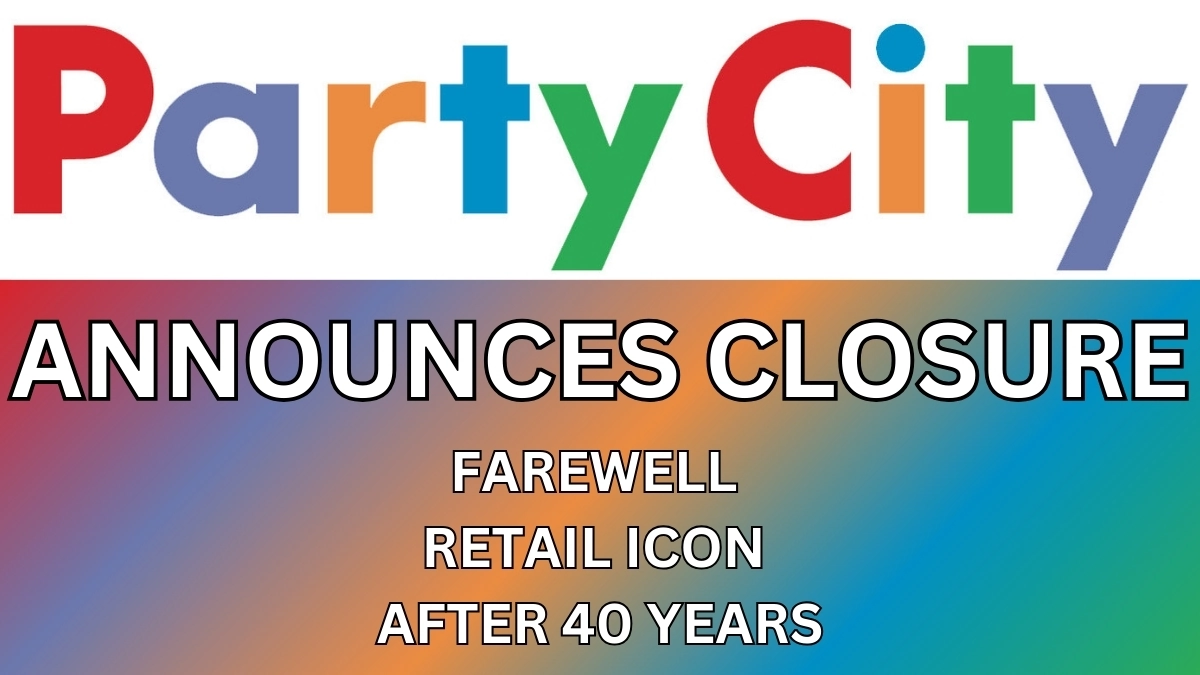In a significant and somber announcement, Party City, the renowned party supply retailer, has revealed that it will close all of its stores, marking the end of nearly four decades in business. CEO Barry Litwin conveyed this difficult news to employees on December 20, 2024, during a corporate meeting, stating that the company is “winding down” operations immediately due to insurmountable financial challenges.
Table of Contents
The End of an Era
Founded in 1986, Party City quickly became synonymous with celebrations, offering everything from balloons and costumes to party decorations and seasonal supplies. With over 850 locations across North America, it was a go-to destination for families and event planners alike. However, the retailer has struggled in recent years, facing mounting pressures from inflation, changing consumer habits, and fierce competition from e-commerce giants like Amazon and seasonal pop-up shops such as Spirit Halloween.
Financial Struggles and Bankruptcy
Party City’s financial troubles have been well-documented. The company filed for Chapter 11 bankruptcy protection in January 2023, burdened with approximately $1.7 billion in debt. After restructuring efforts allowed it to emerge from bankruptcy in September 2023—eliminating nearly $1 billion of that debt—Party City still found itself unable to sustain operations amid ongoing economic challenges.
Litwin expressed regret during the meeting, stating, “This is undoubtedly the hardest message I’ve ever had to convey. We’ve exhausted every avenue we could to prevent this situation.” Despite attempts to renegotiate leases and close underperforming stores, the company reported a significant decline in sales, with net revenues dropping from $502 million in 2022 to $407 million in September 2023.
Impact on Employees and Communities
The closure announcement has left approximately 6,400 full-time and 10,100 part-time employees without jobs or severance pay. Benefits for employees are set to cease immediately. For many workers who have dedicated years to the company, this sudden termination of employment is particularly disheartening.
“It’s devastating news,” said Maria Lopez, a long-time employee at a Party City location in New Jersey. “We were all hoping for a turnaround after the bankruptcy restructuring. To hear that we’re closing just before Christmas is heartbreaking.”
The impact of Party City’s closure extends beyond its employees; it also affects communities that relied on the store for celebrations and events. Families have turned to Party City for birthdays, graduations, and holidays for decades. “Party City was always part of our celebrations,” remarked Lisa Bennett, a loyal customer. “It’s sad to see such an iconic brand disappear.”
Industry Context: Retail Challenges
Party City’s closure is part of a broader trend affecting traditional retailers in today’s rapidly evolving marketplace. According to Coresight Research, major retail chains are projected to close more stores in 2024 than any year since 2020. The rise of e-commerce has fundamentally changed consumer shopping habits, leading many brick-and-mortar stores to struggle for survival.
Industry experts point out that Party City’s challenges reflect larger economic trends impacting discretionary spending as consumers tighten their budgets amid rising living costs. “The retail landscape has fundamentally changed,” said Dr. Emily Johnson, a retail analyst at a leading market research firm. “Companies need to adapt quickly or risk falling behind.”
Future Prospects for Party City
As Party City initiates its wind-down process, liquidation sales are expected to begin shortly at remaining locations. However, it remains unclear whether the brand will maintain any online presence or if it could potentially reemerge under new ownership in the future.
The company’s abrupt closure raises questions about the sustainability of other retailers facing similar pressures. With Big Lots also announcing its own closure plans shortly after Party City’s announcement, it highlights the precarious state of many traditional retail chains.
Conclusion: A Legacy of Celebration
The closure of Party City marks the end of an era for a brand that played a significant role in countless celebrations across North America. As communities adjust to the loss of this iconic retailer, the legacy of joy and festivity that Party City fostered will not be forgotten.
While the challenges facing traditional retailers are daunting, they also present opportunities for innovation and adaptation within the industry. As consumers continue to evolve their shopping habits, finding new ways to celebrate will remain essential—whether through emerging brands or alternative shopping experiences.
In reflecting on Party City’s journey over nearly four decades, one thing is clear: its impact on celebrations will resonate long after its doors close for good.

